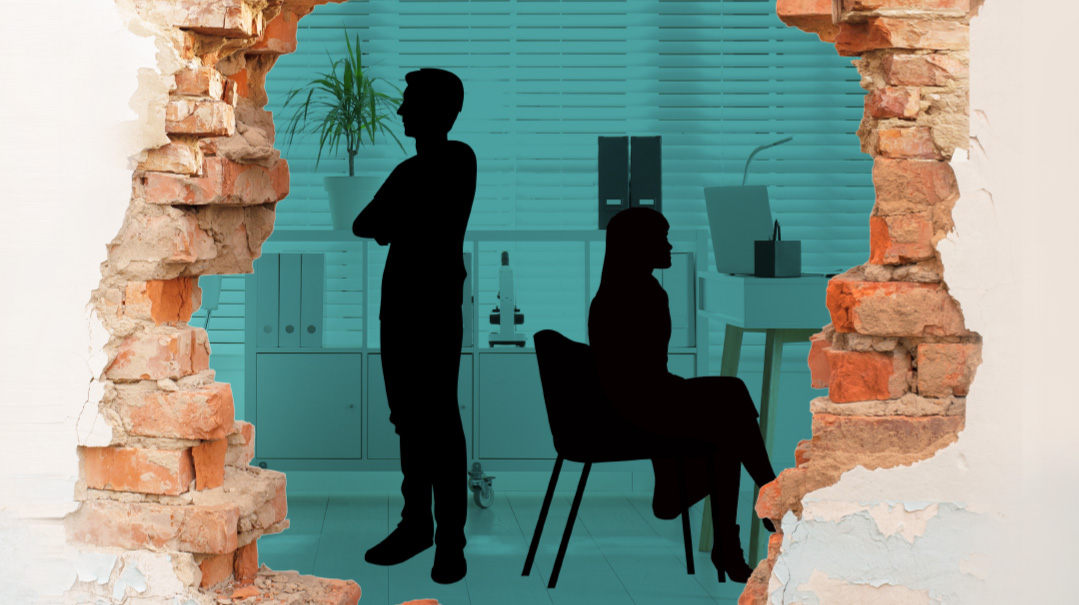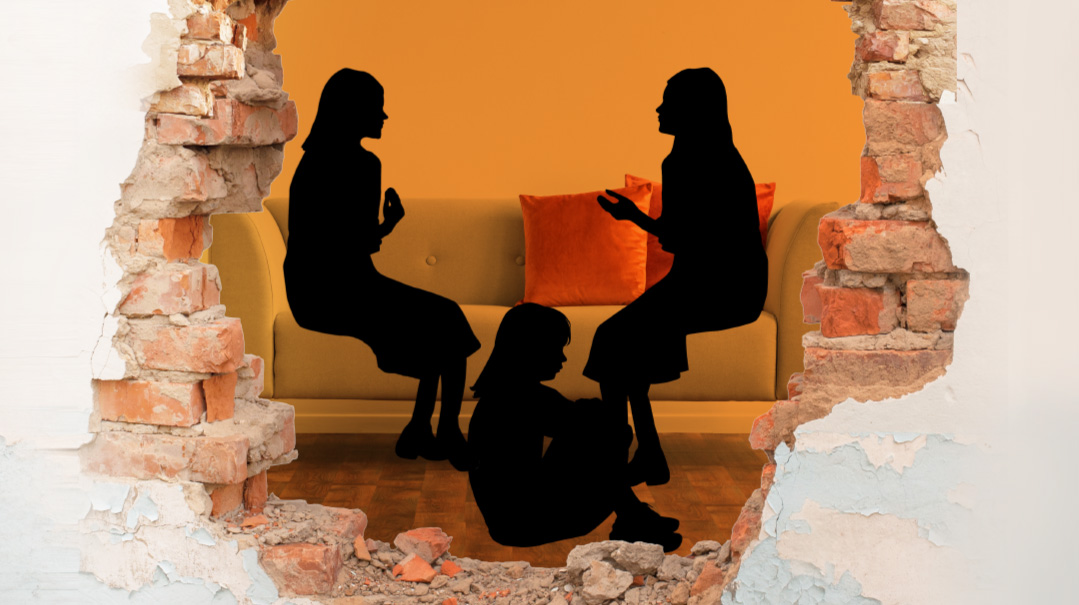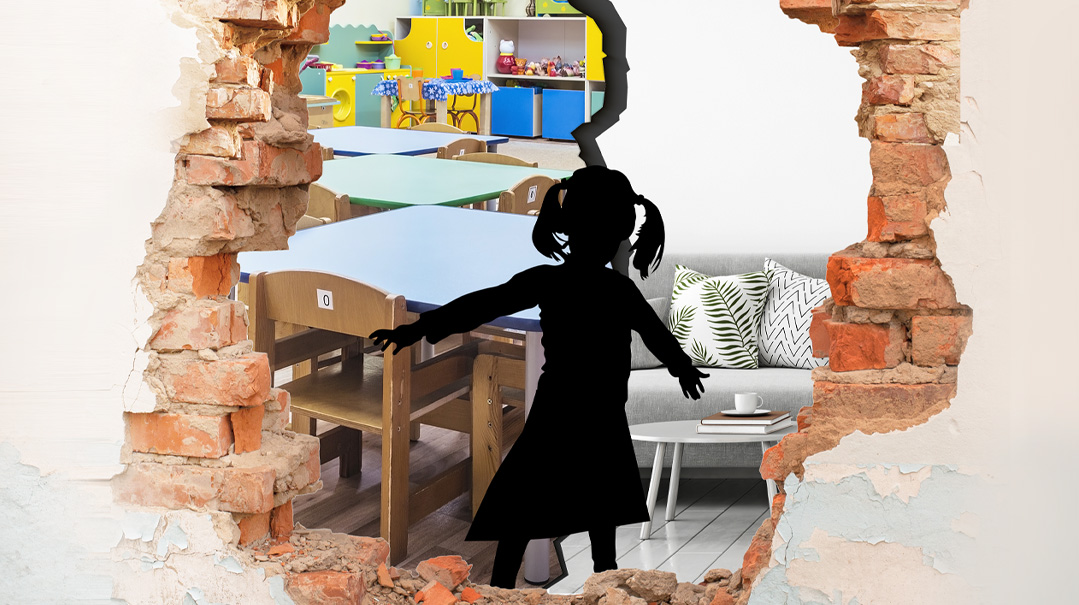Caught Between Two Worlds

Can I find a balance between my Internet usage and my ideals?

Moderated by Faigy Peritzman
I’ve been feeling pretty stuck recently. I’m a single girl in nursing school, and I need YouTube for school; I wouldn’t have gotten this far without it. The medical and nursing education videos on the site have literally helped me pass my courses, and I’ve been told that such technical support is crucial to continue to succeed in my schooling.
I’ve installed a really good filter, but I find that although I’m not logging into anything “bad,” I waste a horrible amount of time watching innocuous things.
I try to tell myself that when I finish school, I’ll completely block it, but I realize that’s not realistic. At least in the beginning, I’ll be reliant on it in any new job I take (new nurses are nowhere near experts). I want to get rid of it so badly, but I need it professionally (and the medical geek part of me wants it too, because I love medical videos).
I struggle with my use of the Internet in general. My future job is going to come hand in hand with Internet education, and I need to learn how to live with it. But I feel trapped.
I’m caught between two worlds. There’s the ideal one in my mind — the type of life I desperately want for myself, and the way I envision my future home — and the practical one, where so much of my daily life revolves around the Internet. Can I have one without destroying the other?
Rabbi Menachem Nissel has been teaching in yeshivos and seminaries in Yerushalayim for over 30 years and is the author of Rigshei Lev: Women & Tefillah.
I’m not sure if this makes you feel any better, but I’m constantly hearing about the challenge of mild YouTube addiction. A talmidah will bemoan that it typically starts with something “important,” followed by an enticing clickbait asking her to watch another “slightly important” three-minute video. Suddenly, without warning, it’s two hours later, and she’s watching a tutorial on how to communicate with a giraffe. How did she get there?
You must fight this, otherwise you’ll wake up years later and realize that huge chunks of your precious life have been irretrievably lost. Furthermore, Internet surfing, even when innocuous and filtered, is rarely a healthy outlet like a hobby. It’s one of the great challenges of our generation.
Here’s a three-point plan that may work for you:
Chesed: Recognize that free time is the plaything of the yetzer hara. The solution is to be proactive in keeping yourself busy, preferably with time-bound obligations. Since most of your life when raising a family will have you involved with the amud of chesed, I strongly suggest you ramp up the chesed you do now, several hours a day. You can volunteer for bikur cholim, tutor teens, work in kiruv, make packages for the poor, or visit old age homes. You can even help your mom (sarcasm intended). The pressure of having this responsibility won’t let you waste time. If chesed isn’t an option, at least maintain a healthy social life. Keep yourself busy.
Self-control strategies: It’s like taking that second Pringle; once you click to watch your second YouTube clip, you’re “in the zone” and it’s almost impossible to pull yourself out. However, if you have a plan before you click the first time, you have a chance. The plan has to be personalized, preferably written down, to make it real. You need to be self-aware and realistic as to what works for you. The idea is to set yourself up for success. Remember not to lose hope if you fail, just try something different. This will be a long journey. Here are a few examples:
- Place a timer next to your computer (many phones have them) and challenge yourself to not watch more than half an hour of non-essential You Tube videos a day. Make a chart for a month. If you succeed, celebrate with a tub of ice cream. Not Ben & Jerry’s. Next month go for 25 minutes. The month after 20 minutes…
- Do the same, but with a trusted friend struggling with similar issues. Like with weight-loss challenges, having a partner adds motivation. Unlike with weight-loss challenges, you can celebrate together with ice cream.
- If positive reinforcement isn’t for you, put ten dollars in a pushke every time you go over your half-hour of watching time. Preferably a tzedakah that doesn’t excite you, like a donation to the seminary that rejected you, thus giving you an incentive not to mess up.
- Instead of a timer, use your browsing data (click on the “history” icon). Print out the list and read it next time you log on. Oy, the bushah!
- Join WebChaver.org so a trusted female friend or mentor knows what you’re seeing.
- Work on your computer in a public place.
- Download the 613tube extension or the equivalent, which offers a cleaner environment.
- Have motivational quotes on or near your computer. Pesukim, mussar, or write your own. Something that’s both literally and figuratively in your face.
- Close your computer at midnight. For so many, night time is when we lose self-control.
Tefillah: Recognize you need Hashem’s help to get through this. In Shemoneh Esreh you can have kavanah when saying the words teshuvah sheleimah or hoshieinu v’nivasheia. Best is to talk to Hashem in English before you take three steps back and ask Him for inner strength not to waste time on the Internet. Daven again before touching your computer by saying a kapitel Tehillim, followed by the same request.
If these suggestions seem daunting, recognize how appalling and depressing the alternative is. Remind yourself that change comes slowly and with hard work. Most of all, focus on the prize at the other end — a new lease on life.
The Internet is the Mitzrayim of the 21st century, and we have the choice to choose freedom. Live a life where you’re in control, not a life that controls you. You’ll have earned the greatest simchah in This World and in the Next One.
Rebbetzin Leah Lieff has been in the IT industry, servicing financial services, for over 40 years, and is currently a senior VP in a bank. Her husband is the rosh yeshivah of Yeshiva Gedolah of South Monsey.
I applaud you, as you’re facing head-on a challenge many people struggle with. You recognize this nisayon and you’re willing to deal with it. I must admit that I’m not sure I understand why Internet education is integral to your future position. Typically, a nurse will have plenty of on-the-job training opportunities.
However, if, as you insist, your future work, or perhaps furthering your education is indeed contingent upon the Internet as a core requirement, you may want to defer this route or even reconsider this entirely.
The Internet poses multiple threats. Even if a site may be appropriate in nature, considering its relevance to one’s job, there’s always the issue of wasted time. As you admit, you struggle with wasting time online — this cannot be ignored.
I’d suggest you consider building barriers to protect yourself from this challenge even in your current situation. Your question of “Can I have one without destroying the other?” has an unfortunate but short answer: No. You can’t expect to have a kedushadig life without imposing the restrictions necessary to keep yourself and the time spent online in check. The more time we spend on the Internet, the greater the chance for regret.
Here are some practical pointers to help yourself in your current situation: If there’s a clip or instructional video that’s crucial for learning, you can access the site while either in school, or in a library, or your place of work. If you limit where you can access these videos, you’ll have less freedom to spend accessing innocuous sites that waste your time.
If these alternate locations aren’t an available option, consider installing a stronger filter on your own device restricting visits to YouTube. These types of filters work best when they’re managed by a third party. When such a filter is added, any access to a YouTube site would require Help Desk support from a third party to remove the filter. Each request requires that the third party evaluate the site. This acts as a deterrent, as initially all YouTube videos will be blocked and thereby contribute to a frustrating Internet experience, preventing your daily life from revolving around the Internet.
Over time, you’ll get used to these safeguards and will no longer rationalize the need for spending time watching medical videos that aren’t critical to a job, essentially weaning yourself off this fix. Wishing you much hatzlachah in succeeding in this area and in your future endeavors.
Chassi Bienstock BSN, is a recent graduate of Georgian Court University. She’s currently working in home care and continuing her degree as a Nurse Practitioner in graduate school.
Before answering your question, I spoke with several of my friends who’ve also graduated nursing school, many of whom are working in hospitals. I wanted to make sure that my response wouldn’t be based on my personal experience, but on the experiences of many who are dealing with the same issues you’re facing.
Based on these conversations, it’s clear that there are those students to whom YouTube videos and tutorials are considered critical for aid in studying, mnemonics, visual aids, and more. However, there were an equal number who didn’t utilize this type of assistance, instead relying on stellar class attendance, efficient note-taking, reading the textbooks, and group reviews. Those in this second group managed just as well as those in the former.
It’s clear that your dilemma regarding videos isn’t limited to those attending nursing school. Regardless of what you’re studying, if you are in college or even high school, there will always be students who rely heavily on these aides regardless of their field of study. Yet it’s also clear that people determined not to utilize this type of assistance can and do excel in their fields.
When I was in seminary in Eretz Yisrael, a well-respected rebbetzin tried to dissuade me from my future plans of entering nursing school. “There’s no way you’ll finish nursing school without a smartphone,” she warned me.
I’m the type who can’t back down from a challenge, and it’s with pride that I did recently graduate without a smartphone. What, then, did I use to help myself with the heavy study load? Several of us would take detailed notes in class and before a test, upload them onto one Google document. This way, we were able to study with the benefit of peer reviews and compilations. The professors would also show slides in the classroom that were very instructive.
Although I attended an all-female class as arranged through the New Seminary, our professors were the same as those in the regular university. There was never a teacher who insisted that we must study on our own via You Tube clips. It was simply a personal choice, and reading the textbook together with class participation did the trick just as well for me.
Even post-college, now that we’re all working, I contacted several friends who are working in hospitals. Hospitals will never demand you continue your education via YouTube instructional clips. Instead, they may send out videos that are generated in the hospital and require no Internet surfing.
I’ve found a personal mentor within my workplace to be essential in developing my career. Any beginning nurse needs hands-on training and having someone live within your department cannot compare to a generic short clip that doesn’t take into account on-site job requirements and policies.
It’s clear from your question that you’re grappling with the values you want to continue to strengthen and incorporate in your life both now and in the future. I hope I’ve clarified that upholding these values is possible even in your chosen field, and I want to wish you much hatzlachah in your studies both now and post-college.
(Originally featured in Family First, Issue 780)
Oops! We could not locate your form.












